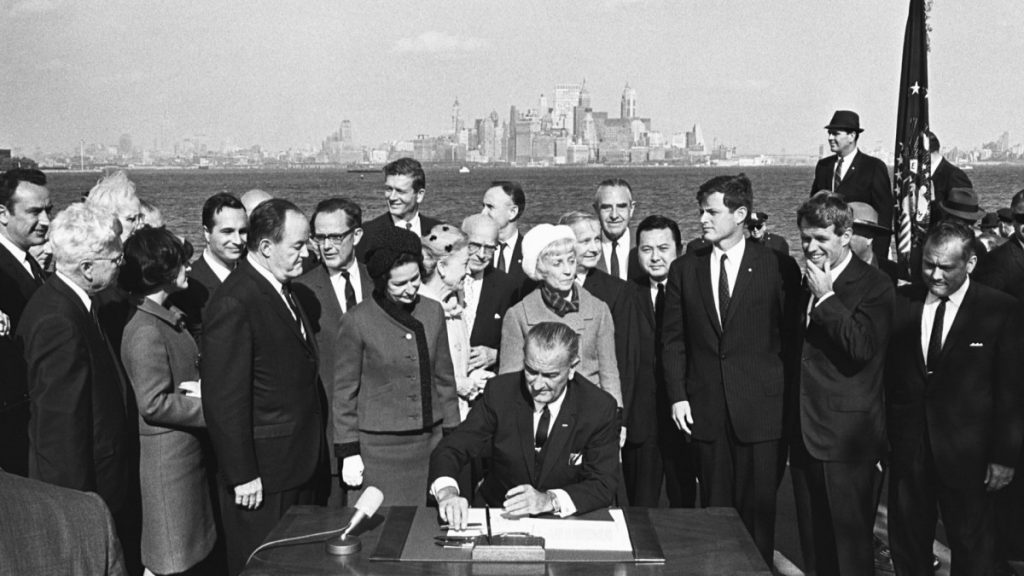About the INA

The Immigration and Nationality Act of 1965, also known as the Hart–Celler Act, is a federal law passed by the 89th United States Congress and signed into law by President Lyndon B. Johnson. The law abolished the National Origins Formula, which had been the basis of U.S. immigration policy since the 1920s. The act removed de facto discrimination against Southern and Eastern Europeans, Asians, as well as other non-Northwestern European ethnic groups from American immigration policy.
The National Origins Formula had been established in the 1920s to preserve American homogeneity by promoting immigration from Northwestern Europe. During the 1960s, at the height of the Civil Rights Movement, this approach increasingly came under attack for being racially discriminatory. With the support of the Johnson administration, Senator Philip Hart and Congressman Emanuel Celler introduced a bill to repeal the formula. The bill received wide support from both northern Democratic and Republican members of Congress, but strong opposition mostly from Southern Democrats, the latter mostly voting Nay or Not Voting. This issue served as an inter-party commonality amongst constituents and reflects the similar Congressional District and Representative voting patterns. President Johnson signed the Hart–Celler Act into law on October 3, 1965. In opening entry to the U.S. to immigrants other than Northwestern European and Germanic groups, the Act significantly altered immigration demographics in the U.S.
The Hart–Celler Act created a seven-category preference system that gives priority to relatives and children of U.S. citizens and legal permanent residents, professionals and other individuals with specialized skills, and refugees. The act maintained per-country and total immigration limits, but included a provision exempting immediate relatives of U.S. citizens from numerical restrictions. The act also set a numerical limit on immigration from the Western Hemisphere for the first time in U.S. history. Though proponents of the bill had argued that it would not have a major effect on the total level of immigration or the demographic mix of the United States, the act greatly increased the total number of immigrants coming to the United States, as well as the share of immigrants coming to the United States from Asia and Africa. (source)
